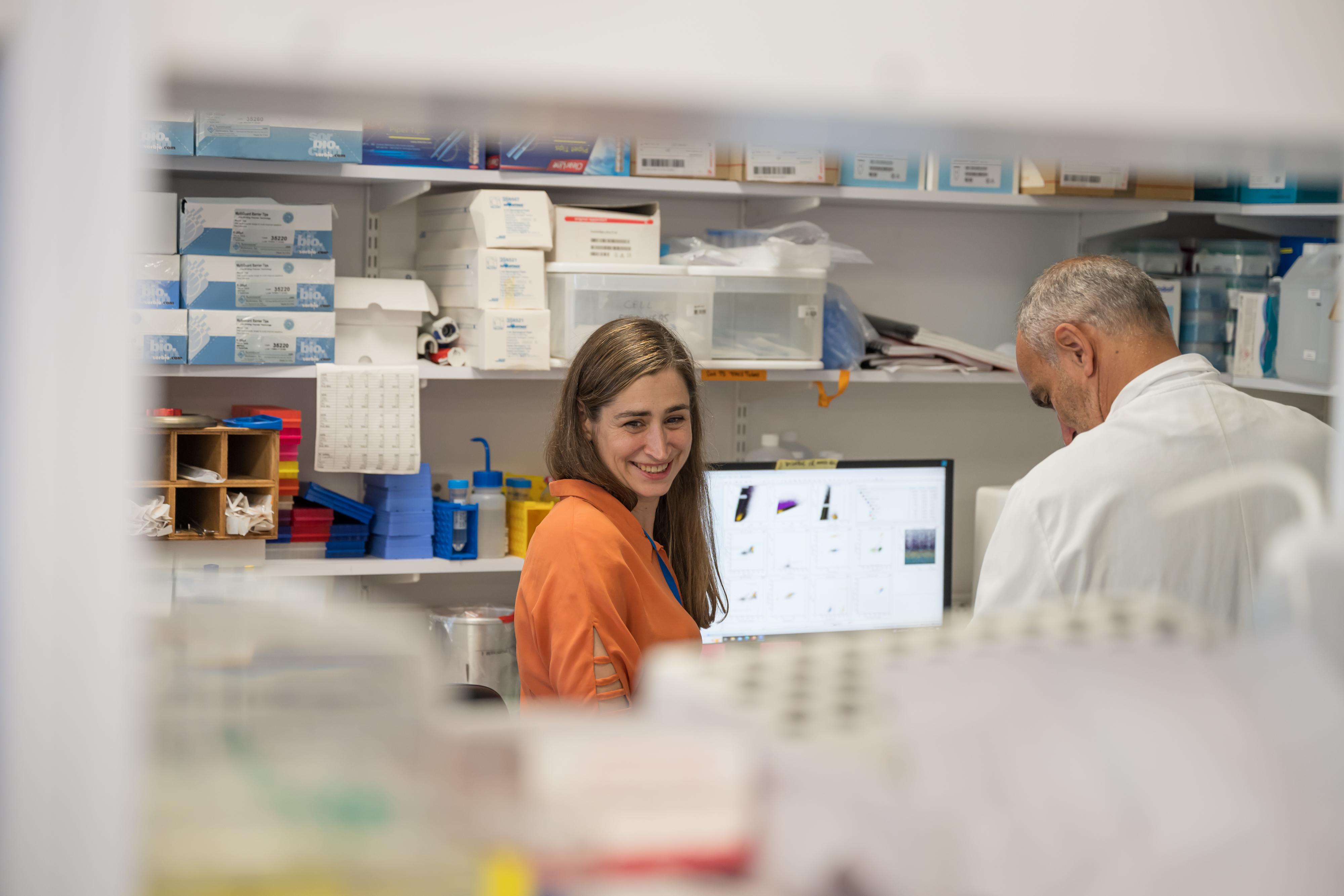Many pregnant women do not meet the nutritional recommendations of health authorities. According to a recent meta-analysis, most of them have too low levels of iron and calcium and nearly half of them have too high fat intakes.

“From the start of your pregnancy, adopt a balanced, alcohol-free diet. Certain foods are to be preferred because they provide essential vitamins and nutrients for your baby: folate or vitamin B9 in early pregnancy, then calcium, vitamin D, iron, carbohydrates…”, writes health insurance on its website. However, many pregnant women do not meet the nutritional recommendations of health authorities, warns an international study published on December 2 in the journal Maternal & Child Nutrition.
By analyzing 18 international studies on the eating habits of pregnant women or trying to have a baby, the researchers found that most of them had too low levels of iron and calcium and that 55% of them exceeded recommendations for fat intake. However, the more educated pregnant women were, the more likely they were to follow prevailing dietary recommendations, the scientists noted. Being older or not smoking was also a factor in better adherence to health advice. And this, as much in pregnant women as in those who were trying to have a child.
“The relationship between healthy eating and childbirth outcomes is well established, but our research suggests that women may not be following the guidelines developed to help them eat well, largely because they don’t don’t know them at first,” says Cherie Caut, a researcher at the Endeavor College of Natural Health in Australia.
The importance of iron and calcium
However, these worrying results could have negative consequences for the pregnancy and the health of the offspring. “Adequate iron intake during pregnancy is important to prevent adverse effects of pregnancy and childbirth, such as maternal anemia, low birth weight, and premature birth,” the researchers remind. Furthermore, “maintaining an adequate intake of dietary calcium during pregnancy is also important as it may help reduce the risk of pre-eclampsia. [hypertension artérielle associée à une présence excessive de protéines dans les urines après 20 semaines de grossesse, NDLR].”
Finally, “the finding that total dietary fat intake exceeded recommendations [c’est-à-dire 30 % de l’énergie totale] is still clinically significant as it could contribute to unhealthy weight gain in the mother.” However, “the consequences of this weight gain for the mother and the infant can be considerable, maternal obesity being associated with an increased risk of pre-eclampsia, gestational diabetes, macrosomia, congenital anomalies, stillbirth, low birth weight and maternal mortality”, warn the authors of the study.
The latter, however, has some limits, they concede, particularly concerning the food intake of men during conception. Further research on the subject is therefore necessary.
Promoting the links between healthy eating and healthy pregnancy
“The community needs better information on healthy eating in order to tackle this problem. Promoting the links between diet and healthy pregnancy and childbirth, and increasing support for healthcare professionals, can help better educate women and their partners about the importance of food choices to pregnancy success.” conclude the researchers.
In France, the health authorities recommend that pregnant women give priority to folic acid, “essential for the growth of the baby”. “The necessary folate intakes can be provided by the daily diet in fresh or canned or frozen fruits and vegetables (spinach, watercress, lamb’s lettuce, melon, walnuts, chickpeas, chestnuts, dandelion, yeast), but are often insufficient. . Your doctor or your midwife will prescribe a vitamin B9 supplement if possible before conception (at least 4 weeks before) and up to 12 weeks of amenorrhea”, is it indicated on Ameli.fr.
If you are going to have a baby, eat dairy products (except those made from raw milk) at least three times a day for an adequate supply of calcium, “essential for building the baby’s skeleton”. Iron, essential to avoid anemia at the end of pregnancy, is present in pulses, fish, meat (to be consumed well cooked). At last, “carbohydrates are a source of energy and constitute the main part of the food of the fetus”, notes the Health Insurance on its site. Give preference to slow sugars (starches, cereals, bread, pulses) and include them in your three daily meals.
.
















